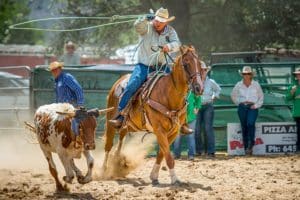State Veterinarian’s Office Investigating EHV-1 Case in Colorado

On April 18 the Colorado State Veterinarian’s Office received notification that a Weld County horse tested positive for equine herpesvirus-1 (EHV-1).
The Colorado Department of Agriculture is investigating the positive case and has placed the stabled area of the facility where the horse is housed under quarantine. The horse is undergoing treatment and others it might have contacted are being monitored but are not showing clinical signs of the disease at this point. At this time, the affected horse that showed clinical signs of disease is recovering.
“The most common way for EHV-1 to spread is by direct horse-to-horse contact but it can also spread through the air, contaminated equipment, clothing and hands; this certainly highlights the importance of practicing basic biosecurity practices,” said State Veterinarian Keith Roehr, DVM. “Equine event organizers should continue to practice routine biosecurity practices that are effective in the prevention of EHV and other horse diseases, as well
Create a free account with TheHorse.com to view this content.
TheHorse.com is home to thousands of free articles about horse health care. In order to access some of our exclusive free content, you must be signed into TheHorse.com.
Start your free account today!
Already have an account?
and continue reading.
Related Articles
Stay on top of the most recent Horse Health news with

















